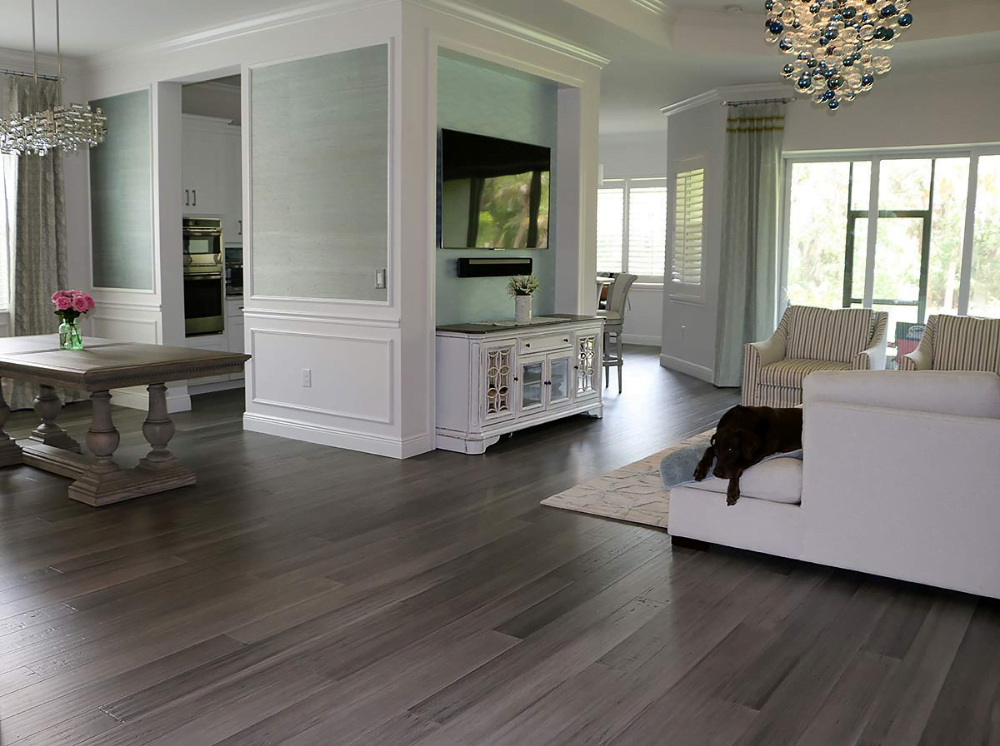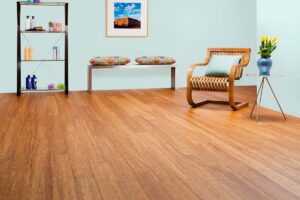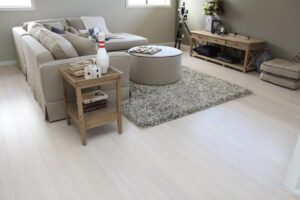If you think of installing bamboo flooring in a basement is possible, there are two things you must take into a concern. Those are moisture and humidity. Basement is a part of the home that is below grade location, meaning that it is prone to moisture and humidity issues.
Therefore, solid hardwood flooring is not recommendable for basement. Instead, bamboo flooring which is constructed from a type of grass has a low absorption rate compared to hardwood, making it usable for below grade locations such as basement.
However, there are always several things to concern just before you finally make your decision on taking bamboo flooring for your basement.
Those things include the dangers of using this flooring in a basement, the test you must carry out to check the moisture level, the engineered bamboo flooring option to consider and the warranty provided by the manufacturers.
These are all the basic information that a must-read to ensure that installing bamboo flooring in a basement would be just fine.
Check them all out below to find the valuable information about bamboo flooring in a basement.
The Dangers of Using Bamboo Flooring In A Basement
Whether you choose to believe or let it in vain, installing bamboo flooring in basement is potentially dangerous.
In fact, bamboo flooring proves to be more resistant to physical flooring damage due to the existence of moisture than the hardwood.
In addition, it is resistant to the presence of mold and mildew which are the other danger for bamboo flooring in a basement.
Just because it is resistant doesn’t mean that it has a good immunity. Bamboo is an organic material that can warp and plum when it is much exposed to moisture or humidity.
Though bamboo flooring contains of antibacterial properties, mold and mildew still potentially grow on bamboo.
This way, if you insist on installing the bamboo flooring in a basement, you must take a moisture and humidity into a big concern.
It is due to the fact that moisture can seep up from the soil around, pass the concrete slab and finally comes into the floors.
Therefore, adding a proper vapor barrier is very crucial during the installation period.
In fact, moisture is the great issue for your bamboo flooring installation in a basement.
No matter you have added the vapor barrier, it can still go well into your floors depending on the water table level in your space.
In this case, flooding in the event of rain will be the greater danger for bamboo flooring.
Basement is associated with the locations where washers and driers are there along with hot water heater, too.
If there is any malfunction in one of the devices, flood can occur and it endangers the bamboo floors.
So, you must carefully operate the devices as well as keep the basement safe against the occupational flooding.
Read Also: Ambient BP Bamboo Flooring Reviews for Home Renovation
The Test To Check Moisture Level
The second thing we would like to share you dealing with the use of bamboo flooring in a basement is the test that you must conduct to know the moisture level of the basement.
Make sure you conduct this test to ensure whether you can definitely install the bamboo flooring in your basement or not. If you find the moisture level high, then you cannot go for it.
Here are the tests type you can consider conducting on your concrete slab to know the moisture level:
- ASTM D 4623
The first test that can help you know how much the moisture existing in your basement is ASTM D 4623.
This way, you are required to tape a sheet of plastic beneath the concrete surface and leave it for 72 hours.
When 72-hour taping is finished, use hygrometer to find out how much the moisture that released out of the concrete slab.
- ASTM F 1896
The second test you can try is ASTM F 1896.
In this test, you need to tape down calcium chloride crystal under the sheet of plastic and leave for 72 hours, too, similar with the previous test type.
When the test time is done, the crystals will be weighed to determine the amount of moisture absorption.
- ASTM F 2170
The third test type you can also conduct to know the moisture level in your basement is ASTM F 2170.
This way, you will need to use a monitor embedded in the concrete slab.
Later, leave it for 72 hours.
After that, the monitor will calculate the relative moisture content that exists in the slab.
However, a problem may arise during the test is conducted. Each of the test can only be used to test the moisture level in one spot only at your given time.
Whereas, the amount of the liquid is different from one surface to another depending on the depth of the material.
The result of moisture test can also change because of the humidity changes in the air.
Noticeably, it leads to a problem for your bamboo flooring installation.
The Engineered Bamboo Flooring Option
There is one bamboo flooring option you can consider installing on your basement that is the engineered version.
True to its design and construction, engineered bamboo flooring won’t make you feel worry too much since it acts unlike the solid one.
Instead, engineered bamboo flooring is constructed with the fiberboard filler on the bottom and a bamboo veneer on the top.
This bamboo veneer comes with an invisible wear layer to provide protection.
Furthermore, engineered bamboo flooring with the high quality is completed with a waterproof seal both on the bottom and on the top, sandwiching the fiberboards and the bamboo veneer.
You can even create a more water resistant floor covering just by combining the engineered bamboo flooring with a proper vapor barrier.
For installation, engineered bamboo flooring can use both the glued-down and the click-together technique.
If you want to install the flooring pretty easily, you can opt the click-together.
This installation technique also allows you to remove the products at a later time.
So, it would be much flexible to use the click-together technique to install the bamboo flooring in the basement.
While the engineered bamboo flooring comes with the look and feel of natural flooring material, moisture issues less occur in the basement.
However, there is a single drawback that is the incapability of the flooring to refinish the surface when it gets damaged.
Now that engineered bamboo flooring comes with the click-together planks, replacing the individual planks is easy and possible.
In short, when your engineered bamboo flooring get damaged or scratched, you can replace the damaged planks easily.
However, you always has an option to keep the floors better than let it get damaged so that you must replace the planks many times.
The Bamboo Flooring Warranty
If you are set to choose and install bamboo flooring in a basement, make sure the flooring products you are going to purchase comes with the warranty provided by the manufacturer.
A high quality warranty will enable you to predict the durability of the flooring.
How long will the material last?
Can it last for even 20 years?
Therefore, it is much recommended that you check out the warranty of the bamboo flooring products.
It is also aimed to know whether the flooring can be installed in a below-grade location or not.
Search the manufacture’s advice and follow it. If some certain types of bamboo flooring are not suitable for basement, it means that you should find another flooring types as suggested by the manufacturer.
Choosing Bamboo Flooring For A Basement
Considering the dangers of using bamboo flooring in a basement, people should be careful to work with the moisture and humidity level.
Some people do not prefer this flooring since they don’t want to take much effort in compromising the moisture and humidity which are the great issues over the flooring.
However, some other people tend to choose this flooring along with all professional steps to have the wonderful and natural flooring for their homes.
Moisture test, engineered bamboo flooring and the quality warranty are the three things to concern about.
Thus, they will not feel worry too much about installing this kind of flooring in the basement.
To convince you more about this flooring, you can also search and find the customer’s review.
Are they satisfied with the product?
What problems do they face in installing and using the bamboo flooring in a basement?
How many rating stars does the product have?
Read Also: All You Need To Know About Bamboo Flooring For Residential Kitchens
Final Words
Conclusively, there are always several things to concern just before you finally make your decision on installing the bamboo flooring in a basement.
Make sure you know the moisture level of your basement and consider the engineered version to avoid the moisture issues.
Highlight any valuable information in this article dealing with how to work with the bamboo flooring you are going to install on your basement.
Finally, it is expected that you have your own consideration to make a final decision.





